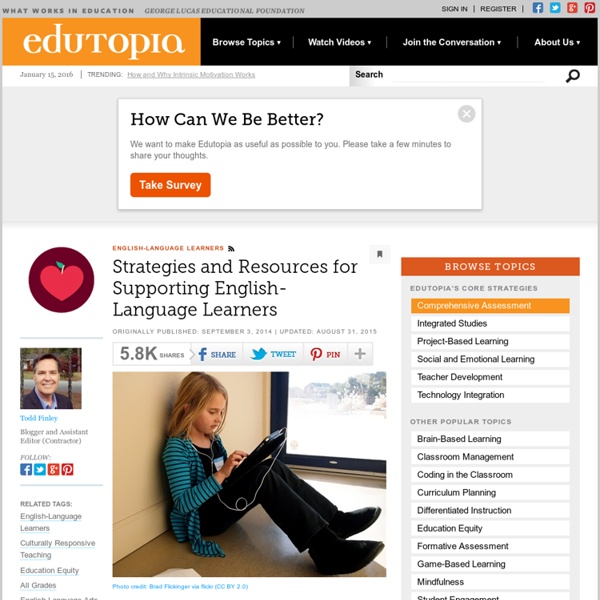Methods of Assessment
Formative (Low-Stakes) Assessments Formative assessment techniques monitor student learning during the learning process. The feedback gathered is used to identify areas where students are struggling so that instructors can adjust their teaching and students can adjust their studying. These are low-stakes assessments (i.e., they have low point values) that happen early and often in the semester. Written Reflections. “What was the most important thing you learned today?” Polls/Surveys. Checks for Understanding. Wrappers. In-class Activities. Quizzes. Online Learning Modules. Modules enable you establish learning pathways for students by establishing prerequisites and requirements. Class Deliverables. Summative (High-Stakes) Assessments: Summative assessment techniques evaluate student learning. Exams. Papers, projects, and presentations. Portfolios.
Vol.6 n°18 | 2012 Les recherches sur les pratiques enseignantes efficaces
Laurent Talbot Research on efficient teaching Joël Clanet Teaching efficiency. Which modelling for this ambition? Olivier Maulini, Andreea Capitanescu Benetti, Cynthia Mugnier, Manuel Perrenoud, Laetitia Progin, Carole Veuthey et Valérie Vincent What is a “good” teaching practice? Bounded rationality and efficiency among future teachers Sabine Kahn Do socio-cognitive misunderstandings determine the teacher effect?
Tomorrow's Professor eNewsletter: 1315. Forming "Teams" or "Discussion Groups" to Facilitate Learning
UP NEXT: Texting in Class Tomorrow's Teaching and Learning---------- 1693 words ----------Forming "Teams" or "Discussion Groups" to Facilitate Learning Background Learning is enhanced when the material to be learned is thought about deeply and also when related material is retrieved from memory and associated with the new material. Nelson (4) argues that courses taught by the traditional lecture are actually biased against those students who come to our classes without strong preparatory training. Overall, scholarly work consistently shows that working in groups and teams is a benefit to all students because this pedagogical approach emphasizes sound principles of learning and memory. Helpful Hints There are many ways to incorporate discussion groups or teams into the course, including think-pair-share, team-learning, problem-based learning, case-based learning, jigsaw method, simulations, gaming, and service-learning (7, 8). Present good scenarios; ask good questions. Assessment Issues 1.
8 ways teachers can talk less and get kids talking more
If you do fewer teacher-directed activities, that means the kids will naturally do more talking, doesn’t it? Not necessarily. I have often found myself talking almost constantly during group work and student-directed projects because I’m trying to push kids’ thinking, provide feedback, and help them stay on task. Even when the learning has been turned over to the students, it’s still tempting to spend too much time giving directions, repeating important information, and telling students how they did instead of asking them to reflect on their work. 1. It can be uncomfortable to watch kids struggle to figure out an answer, but they need time and silence to work through it. 2. It’s easy to get in an instructional rut when you stand at the same place near the board all day long. 3. Cut down on conversations about bathroom/water/pencil sharpening/etc by teaching kids to use sign language to request permission: use sign language to indicate your answer back: yes, no, or wait. 4. 5. 6. 7. 8.
A Handy Chart Featuring 8 Ways to Do Formative Assessment
April 5, 2014 As a follow up to the materials I have already posted on formative assessment, I am introducing you today this wonderful chat that I learned about through Bianca. The chart features 8 strategies teachers can use to conduct a formative assessment. By definition, formative assessment is assessment for learning (summative assessment is assessment of learning ) which usually takes place simultaneously with learning. The aim of formative assessment is to students understanding and plan subsequent instruction. In the chart below, you will get to discover 8 ways you can check for students comprehension, have a look and share with us what you think of it.
The Independent Learning Centre, CUHK
Biography Ms. Christopher's academic and research interests include Student Learning, Teaching Methodologies and their Applications in English for Professional and Academic Purposes, Academic Writing and Online Web-Based Technologies for Business, and the Integration of Case Based Teaching in Communication Skills Development. She holds a PG Certificate in Teaching English as a Foreign Language (TEFLA) for Adults from Cambridge University, a Bachelor of Arts with Honors (BAH) in both English and Art from Acadia University, Canada; and a Master or Arts (MA) in English from Dalhousie University, Canada. She has been teaching both Undergraduate as well as Postgraduate students in Hong Kong since 1990. Selected Publications “The Business Communication Assessment (BCA) and its Curriculum Implications” in Proceeding for Enhancing Learning Experiences in Higher Education: International Conference, 2010 (with Y.
letableau-v3-n1_2014b_0.pdf



